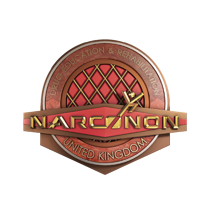The Family’s Role in Addiction Recovery

Family members are usually aware of when a loved one is struggling or doing badly in life—even if the cause is not obvious. At some point, it will be realised that drug addiction is the cause.
It is common for this realisation to cause an emotional struggle for the family. They may experience feelings of confusion or guilt, as to how this occurred; if they contributed to the problem or worries of how they could have prevented it.
Though most people are aware that their loved one will now require help to get back to a sober life, the emotional upheaval or confusion can sometimes impede effective action.
First Step
The first step to helping your addicted loved one is education—educating YOURSELF on the truth on about drugs. Learn about the different substances and their effects, the withdrawal symptoms and the different recovery options available.
This action is extremely important, because, without it, you have no understanding of what your loved one is going through and how to communicate with them about it. It also allows you to understand what may occur during withdrawal and rehab, and allow you to prepare yourself on how best to help your loved one through the difficult period.
Next Step
Once you fully understand the situation, what effects the drugs have on the mind and body, how it can take over and eclipse even the best intentions, you will be better placed to show compassion and understanding.
An important thing to recognise is that understanding and compassion are different from excusing and condoning drug use. Your compassion should in no way give your loved one the go-ahead for furthering their drug use.
Don’t dismiss just how beneficial compassion from family members can be. Ending the isolation an addict experiences, and giving them a feeling that someone understands and wants to help, can sometimes make it possible for your loved one to open up and be willing to look at getting help.
It is advised that research for rehabilitation programmes and different options is done before confronting your loved one, and possibly doing an intervention. That way as soon as the ok is secured, there can be minimal lost time, allowing for as little change of mind as possible.
- Once in a while a loved one will not only admit the drug problem but also want immediate help. In this case, getting your loved one to rehab can happen very fast.
- More often, though, the drugs will still be ruling their mind, and an intervention will be more appropriate. The family can do this, but it is usually more successful when a professional is used, with either an interventionist or an addiction specialist. They have the experience to help your loved one face what has been happening, the damage the drugs are causing, and move them into a position to conclude that they need to come off drugs.
- Occasionally the intervention won’t be immediately successful, but don’t lose hope. Sometimes your loved one just needs time to come to this conclusion on their own, and sometimes you just need to keep working on it.

Don’t diminish how important getting your loved one help is, and not just for them, but for the whole family too.
To contact an addiction specialist, find out how we can help your loved one, or for more information regarding our rehabilitation programme, contact us.


